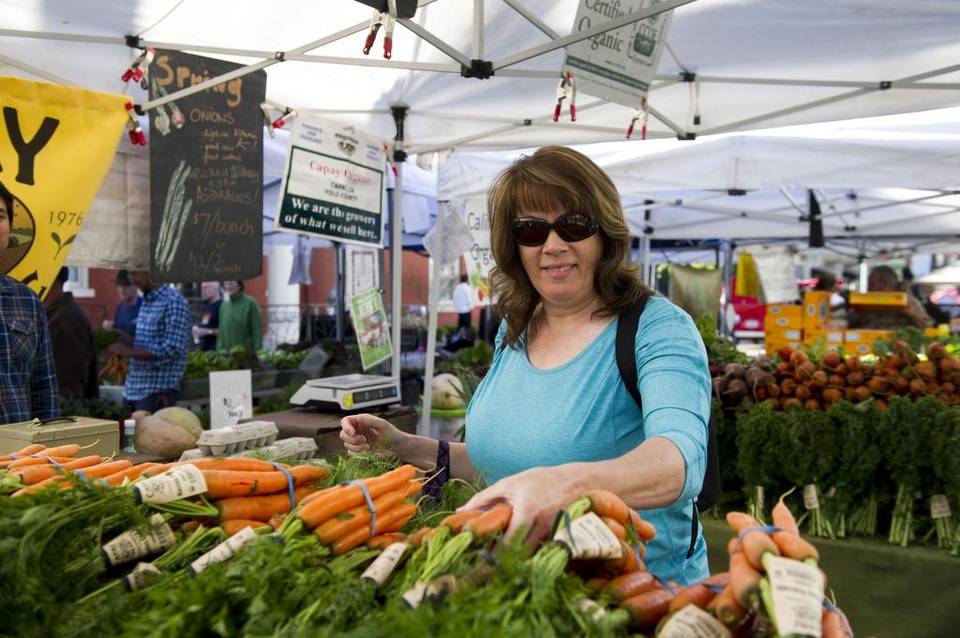
In the News
Put More Fresh Food on the Dinner Table for Poor Families
-
Focus Areas
Healthy Communities -
Expertise
Public Policy Advocacy -
Programs
Roots of Change

Despite California’s agricultural bounty, many rural and urban communities lack access to healthy foods, with millions relying on CalFresh for basic needs. Likewise, despite a thriving food movement and bustling farmers markets, smaller-scale farmers and businesses struggle to remain economically viable.
Assembly Bill 1321, which is scheduled to be heard Thursday by the Assembly Appropriations Committee, would help change that by giving an incentive to CalFresh recipients to buy fresh produce: If they buy $10 worth of California-grown fruits and vegetables, they could get an additional $10 that day for more produce.
Families get more healthy food on the table. Farmers and small businesses sell more produce. Urban and agricultural communities see economic growth. Everybody wins.
Nutrition incentives work for families. Between 2009 and 2012, California’s largest pilot program, Market Match, increased CalFresh purchases by as much as 700 percent at participating farmers markets and improved consumption of healthy food for 79 percent of participating families.
And incentives work for farmers. In 2014 alone, Market Match leveraged $450,000 in incentives to create more than $2 million for participating growers.
Nutrition incentive programs are so successful that last year the U.S. Department of Agriculture made $100 million available to states over five years. But California is not guaranteed any of these matching dollars. The group that manages nutrition incentives at about a dozen sites in Sacramento and Yolo counties estimates that its funding for the year will run out within four months.
AB 1321 would help hundreds more markets and merchants across the state compete for the federal money by creating a centralized application process. It would also grant up to one-third of funds to small businesses, to reach low-income Californians with limited access to farmers markets.
California’s drought makes it urgent to find new ideas that work for all of us. It’s time for the state to expand our small farm and business economy and ensure that all of our neighbors can take part in California’s bounty.
In the 15 years since one of Sacramento’s first urban farms was started, Soil Born Farms has seen off-the-charts interest in its fruits and vegetables. However, the need to fetch a good price has often been at odds with the desire to bring farm-fresh food to poor communities.
AB 1321’s investment is modest, and undoubtedly less expensive than treating diabetes and heart disease over the coming decades. Grants would be prioritized in communities with high rates of diabetes and obesity.
Last year, a similar bill stalled in the Appropriations Committee. Failure to pass AB 1321 this time around will leave federal money on the table, and take healthy food off it. We can’t make the same mistake again.
Michael Dimock is president of Roots of Change, a program of the Public Health Institute. Shawn Harrison is a founder and co-director of Soil Born Farms, one of Sacramento’s first urban farms.
Originally published by The Sacramento Bee
More Updates
Work With Us
You change the world. We do the rest. Explore fiscal sponsorship at PHI.
Support Us
Together, we can accelerate our response to public health’s most critical issues.
Find Employment
Begin your career at the Public Health Institute.



